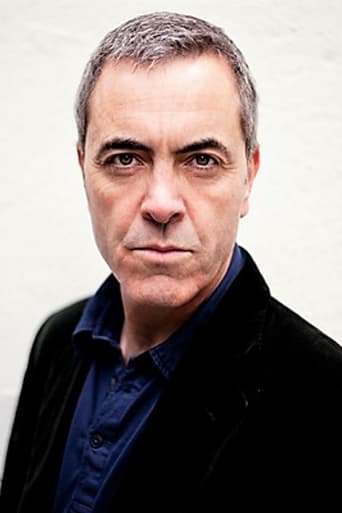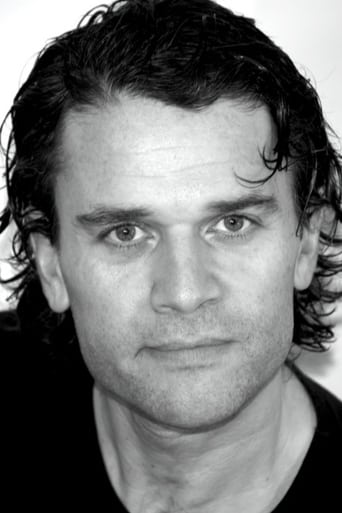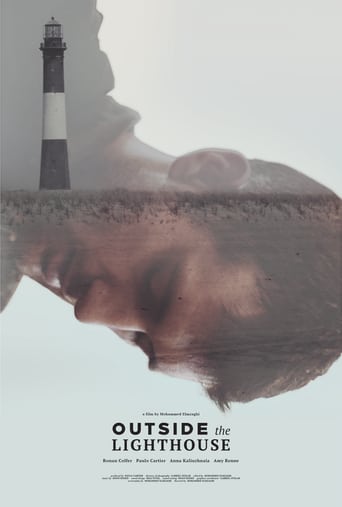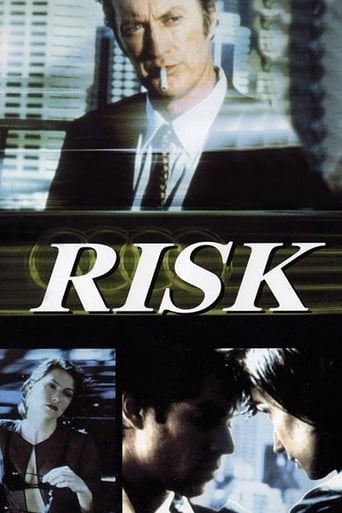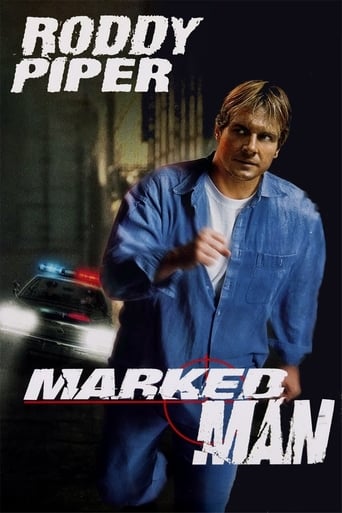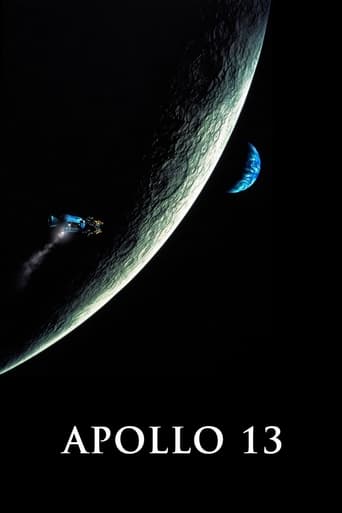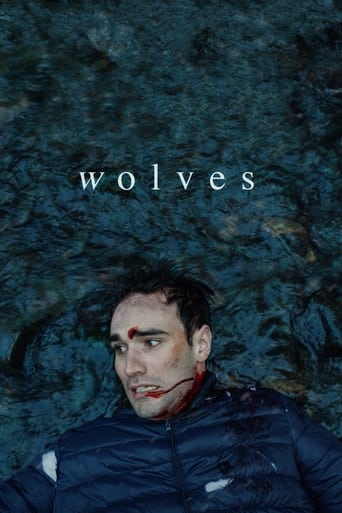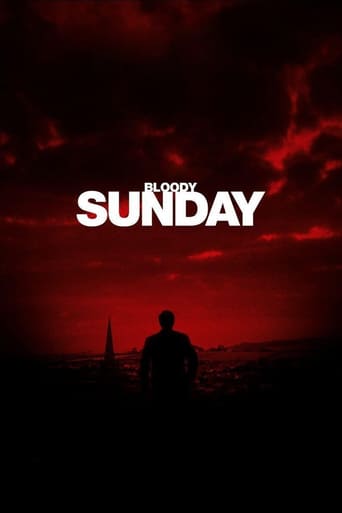
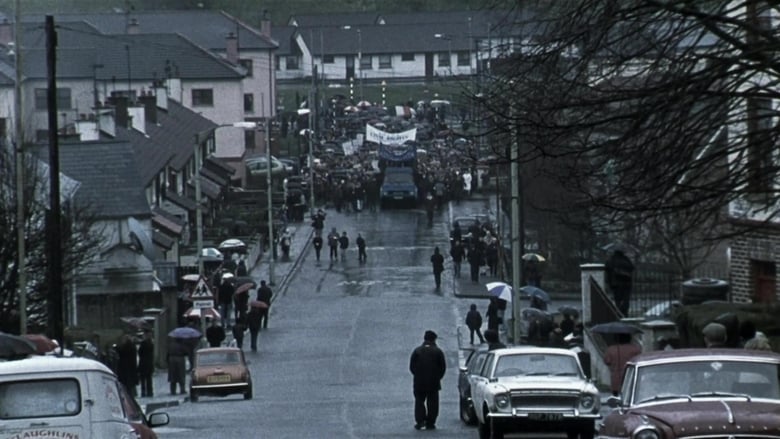
Bloody Sunday (2002)
The dramatised story of the Irish civil rights protest march on January 30 1972 which ended in a massacre by British troops.
Watch Trailer
Cast


Similar titles
Reviews
Powerful, provocative & prompting, Bloody Sunday is a meticulously researched, expertly crafted & thoroughly gripping recreation of the Bogside massacre that occurred in the Northern Ireland town of Derry when British troops opened fire on civilians during a protest march, killing 14 & wounding just as many in the process.Dramatising the events that led to the tragic incident on January 30, 1972, Bloody Sunday follows a civil right activist named Ivan Cooper who was the central organiser of the peaceful rally against internment that ended when British army paratroopers began firing on the unarmed demonstrators in full view of the public & the press.Written & directed by Paul Greengrass, the movie sets its foreboding tone right within the opening segment after which it takes a step back to put its pieces on the board but once the stage is set, it explodes & moves forward with stunning immediacy. Greengrass' direction is at its very best when things go south & the whole episode is extensively detailed in the script.Cinematography employs the quasi-documentary-style to film the entire event as it unfolds, thus bringing the viewers right into the conflict, while the frenetic hand-held camera-work further reflects the chaotic nature of such circumstances. Editing is slick for the most part, music is nearly absent and its cast contributes with convincing performances, playing their given roles with utmost sincerity.On an overall scale, Bloody Sunday is a fiercely directed, deftly scripted, viciously photographed, skilfully edited & brilliantly performed movie that brings the dreadful event to life with remarkable precision, brims with intense emotions from start to finish, and not only works as a riveting thriller but also as an unsettling documentary. Disturbing & disquieting but essential viewing nonetheless, Bloody Sunday is strongly recommended.
Bloody Sunday is about the shootings dead of 14 civil rights marchers by the British army in derry during the conflict in NI. 90% of those killed in the conflict were killed by paramilitaries. However film-makers have decided to make a film about one of the few atrocities committed by the security forces.The film is co-produced by an IRA sympathiser called Don Mullan. He has described the IRA campaign as a reaction to the violence of the state.The propaganda line put forward by this film is that the nationalist community tried peaceful means for achieving civil rights but were just met by state violence and that the British crushed NICRA (as the CRM was called).This contradicts with the facts. In order to get the viewer to believe this the film tells a number of lies 1. Ivan cooper says at the beginning of the film that there were no reforms introduced prior to 1972. This is a flat out lie. Loads of reforms had been introduced beginning in 1968. One man, one vote had been introduced, the B specials had been abolished for example.2. Ivan cooper says at the end of the film that the civil rights movement had been destroyed. This is a flat out lie also. NICRA disbanded voluntarily in the early 1980's. The viewer is therefore misled into believing that there were no longer any peaceful alternatives to violence.The film is extremely anti-British. One piece of anti-British hate-mongering is the message at the end that those who planned the operation were honoured by the queen. It is true that two of the senior officers in charge of the operation were later honoured by the queen. However no one who carried out any of the shootings or ordered any killings were honoured by the queen.Do not believe the lies in this film. The brits were working on setting up a power-sharing arrangement at the time. What was planned was an arrest operation not a massacre as is implied by this film. Everyone of NICRA's demands were introduced by 1975. There were other options available to nationalists other than violence, contrary to the lies in this film!
"Bloody Sunday" is a movie that might be best described as chaotic - which is surely not inappropriate for any movie dealing with the tragedies of Northern Ireland and in particular with the events of January 30, 1972 in Derry. This TV production was filmed in a quasi- documentary style, which perhaps added a touch of reality to what was happening but which, to me, also failed to engage. It largely follows the efforts of the Irish Catholic Member of Parliament Ivan Cooper to organize a peaceful protest march through the streets of Derry, only to be forcibly confronted by the British military. Cooper seems to have modelled his "Civil Rights Association" after figures who were noted for non-violence - particularly Ghandi and Martin Luther King, Jr. There's absolutely no doubt here that the movie takes sides - it's pro-Irish Catholic and anti-British Army. I don't know that I'd go so far as to declare it pro-IRA, though. The IRA doesn't actually get mentioned very often, the emphasis being on the contrast between the desire of the protesters for a peaceful march and the apparent over-reaction of British troops. The movie is far more interesting in its second half, once the confrontation begins. The lead up to the confrontation really didn't capture me all that much, but the events of the actual confrontation were realistically and graphically recreated.I suppose that now (in 2010) before one falls into the trap of declaring this pro-IRA (or at least anti-British) propaganda, one has to take into account the results of the Saville Inquiry, which were made public in June 2010 and led to an apology from David Cameron - the British Prime Minister - in response. The closing captions of the movie certainly make clear that the sympathies of the producers were with the protesters.I didn't consider this to be a great production, but it certainly gives a hint of what feelings were like in Northern Ireland in those troubled times, and it raises a lot of unsettling questions about the use of violence and what it accomplishes.
Greengrass brings his own brand of Cinema Verite to one of the UK's most notorious and shameful episodes in living memory. The iconic image of one brave soul waving a white hankie as he carries a wounded comrade is faithfully recreated, signaling the director's intent to give an interpretation, but an accurate interpretation, of the events that unfolded that day.The film's documentary-style works, just as it does in United 93. That film famously cast unknowns so as not to detract from the power of events. Here, Nesbitt's presence does at times seem jarring, but only in the early moments as he goes on to give an outstanding performance as the convivial Ivan, overwhelmed by a massacre no one could have predicted. The panic of the crowd, the echo of the shots being fired, the incredulity of the reactions - all are believable, and powerfully so. Were the Paras as deliberate and calculating as the film makes out? Isn't there a chance this was a few low IQ numbskulls whose ill-discipline got out of hand? The portrayal of the UK military in particular marks this film out as polemical in its handling of the material. However, given the obfuscation and emotion swirling around Bloody Sunday, how could it be otherwise? Anyone interested in history who thinks they can get it from a film should not be allowed to handle sharp cutlery. However, as a start point to generating curiosity about this event, the film is well-executed. Hopefully, it can be used to begin the social education of future generations as The Troubles start to slip from living memory. Greengrass has made this niche of film-making his own, and on this outing, that niche is in good hands.


